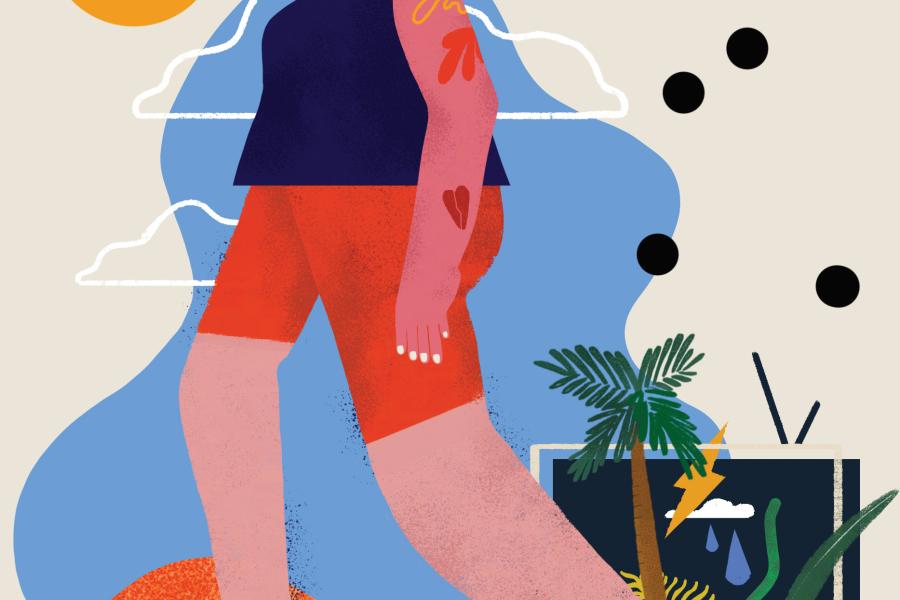I never identified as a quitter.
When I got sober at 20 years old, I didn't think of it as quitting drinking; it felt like I was trading a painful and meaningless existence for something far greater. When I left a relationship that was no longer serving me, it didn't feel like giving up—it felt like making an intentional decision that was healthy for both of us. When I left my high school lacrosse team to pursue musical theater, no one shamed me for quitting—they applauded my courage to seek out something that brought me passion and joy.
I wasn't raised to be lazy or ungrateful. I was taught to trust my gut, rely on my intuition, and get the hell out of Dodge in situations I know in my core aren't right for me.
So when I chose to leave the island during the first episode of Survivor season 45, I didn't feel like a quitter. I wasn't spitting on the thousands of people who audition for the show every year, nor was I negating the gratitude I felt for being cast. I was committing an act of radical self-care. Without self-judgment, I trusted my body's visceral aversion to my surroundings and decided I couldn't continue.
For almost a year prior to flying to Fiji, I spent hours anticipating and strategizing for every possible outcome. I never once imagined I would have a complete mental shutdown once the game started. During a storm that lasted hours, I lost my socks; my toenails became so wet they almost fell off. Those three days on the island, I experienced excruciating hunger pains and didn't sleep once. Instead, I lay awake at night while my tribemates peacefully snored, wondering why my competitive adrenaline hadn't kicked in. I didn't care about performing well enough in the competition so that my fellow tribemates wouldn't want to vote me out. My mind was on sleep, food, and finding a respite from the cameras. Realizing my heart wasn't in the game—a variable I never anticipated—filled me with anxiety. Despite months of physical and mental preparation, I needed to leave.
To no one's surprise, some Survivor fans see me as an ungrateful quitter. But I did not want to wait to be sent home to save face on national television; I refuse to trade my authenticity for the approval of strangers.
Posted in Alumni
Tagged afterwords








